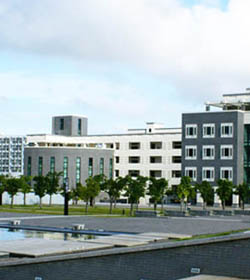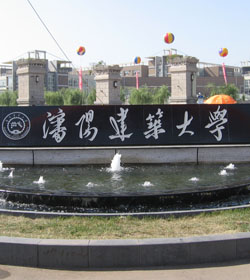英语四级阅读练习:2017年大学英语四级阅读备考测试练习20篇:旅游
2017-04-30 03:46:00pm英语四级阅读练习
The tourist trade is booming. With all this comingand going, youd expect greater understanding todevelop between the nations of the world. Not a bitof it! Superb systems of communication by air, seaand land make it possible for us to visit each otherscountries at a moderate cost. What was once thegrand tour, reserved for only the very rich, is nowwithin everybodys grasp? The package tour andchartered flights are not to be sneered at. Moderntravelers enjoy a level of comfort which the lordsand ladies on grand tours in the old days couldnthave dreamed of. But whats the sense of this mass exchange of populations if the nations ofthe world remain basically ignorant of each other?
Many tourist organizations are directly responsible for this state of affairs. Theydeliberately set out to protect their clients from too much contact with the local population.The modern tourist leads a cosseted, sheltered life. He lives at international hotels, where heeats his international food and sips his international drink while he gazes at the natives from adistance. Conducted tours to places of interest are carefully censored. The tourist is allowed tosee only what the organizers want him to see and no more. A strict schedule makes itimpossible for the tourist to wander off on his own; and anyway, language is always abarrier, so he is only too happy to be protected in this way. At its very worst, this leads to anew and hideous kind of colonization. The summer quarters of the inhabitants of the citeuniversitaire: are temporarily reestablished on the island of Corfu. Blackpool is recreated atTorremolinos where the traveler goes not to eat paella, but fish and chips.
The sad thing about this situation is that it leads to the persistence of nationalstereotypes. We dont see the people of other nations as they really are, but as we have beenbrought up to believe they are. You can test this for yourself. Take five nationalities, say,French, German, English, American and Italian. Now in your mind, match them with these fiveadjectives: musical, amorous, cold, pedantic, native. Far from providing us with any insightinto the national characteristics of the peoples just mentioned, these adjectives actually act asbarriers. So when you set out on your travels, the only characteristics you notice are thosewhich confirm your preconceptions. You come away with the highly unoriginal and inaccurateimpression that, say, Anglo-Saxons are hypocrites of that Latin peoples shout a lot. You onlyhave to make a few foreign friends to understand how absurd and harmful nationalstereotypes are. But how can you make foreign friends when the tourist trade does its best toprevent you?
Carried to an extreme, stereotypes can be positively dangerous. Wild generalizations stirup racial hatred and blind us to the basic fact—how trite it sounds! – That all people arehuman. We are all similar to each other and at the same time all unique.
1. The best title for this passage is
[A] tourism contributes nothing to increasing understanding between nations.
[B] Tourism is tiresome.
[C] Conducted tour is dull.
[D] tourism really does something to ones country.
2. What is the authors attitude toward tourism?
[A] apprehensive.
[B] negative.
[C] critical.
[D] appreciative.
3. Which word in the following is the best to summarize Latin people shout a lot?
[A] silent.
[B] noisy.
[C] lively.
[D] active.
4. The purpose of the authors criticism is to point out
[A] conducted tour is disappointing.
[B] the way of touring should be changed.
[C] when traveling, you notice characteristics which confirm preconception.
[D] national stereotypes should be changed.
5. What is ‘grand tour’ now?
[A] moderate cost.
[B] local sight-seeing is investigated by the tourist organization.
[C] people enjoy the first-rate comforts.
[D] everybody can enjoy the ‘grand tour’.



